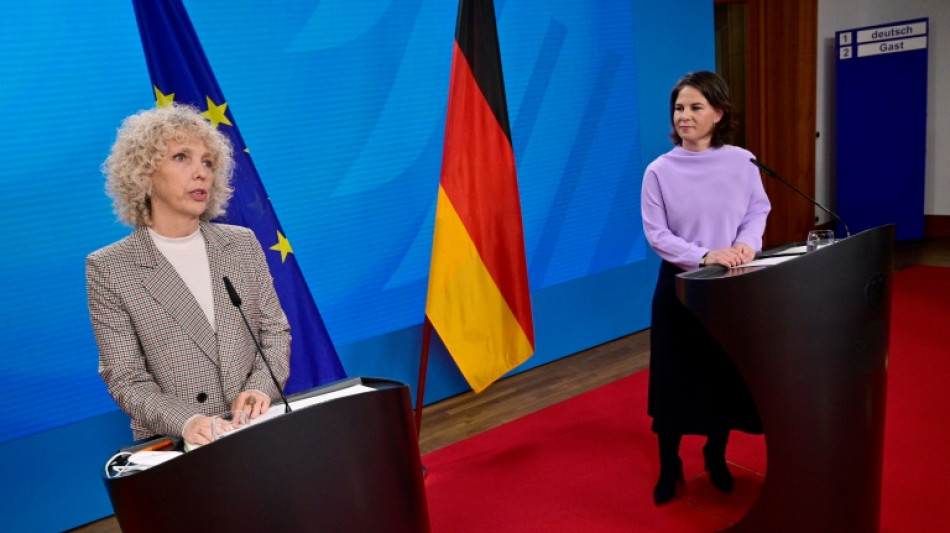

Germany taps Greenpeace chief Morgan as first climate envoy
Germany's foreign minister on Wednesday unveiled former Greenpeace chief Jennifer Morgan as her special climate envoy, as part of a pledge to put the battle against global warming "at the top" of the diplomatic agenda.
US-born Morgan, 55, who had been co-leader of Greenpeace International since 2016, will be the first person to hold the newly created role in Europe's top economy.
The eye-catching appointment comes as Germany's two-month-old coalition government, led by Social Democrat Chancellor Olaf Scholz, aims to pursue more global cooperation against climate change.
Foreign Minister Annalena Baerbock, from the ecologist Green party, introduced Morgan as "the face of Germany's international climate policy".
"Even in our foreign policy we are putting the climate crisis where it belongs: at the top of the agenda," Baerbock told reporters after Scholz's cabinet approved Morgan's appointment.
The appointment caused a stir in Germany, with supporters hailing it as a coup for Baerbock while critics accused the minister of blurring the line between lobbying and governing.
Morgan's US nationality also drew scrutiny, which Baerbock countered by saying Morgan was in the process of applying for German citizenship and that it suited the foreign ministry to have international staff.
The new role will see Morgan work as a special representative for international climate policy initially and as state secretary in the foreign ministry once she has acquired German citizenship.
Morgan said "time is running out" to limit global warming to 1.5 degrees Celsius, requiring "international cooperation like we have never seen before".
After 30 years of environmental activism, Morgan said Germany's foreign ministry was where she could now "make the biggest difference".
Among Morgan's key tasks will be preparing Germany for global climate conferences like the COP27 in Egypt in November.
The German government has also pledged to use its G7 presidency this year to create a "climate club" of leading economies.
The aim is to agree common climate protection standards and avoid competitive disadvantages as countries transform their industries to reach carbon neutrality.
Germany itself is planning massive investments to green its economy, including by scaling up the use of renewable energy, to achieve net-zero emissions by 2045.
The Greens' Robert Habeck, who heads Germany's new "super ministry" of economy, energy and climate protection, warned last month that the country had a "gigantic" task ahead.
- 'Radical views' -
Karsten Smid, a climate and energy campaigner for Greenpeace in Germany, congratulated Morgan on Twitter. "We will miss you," he said.
Thomas Silberhorn, a lawmaker from the opposition CSU conservative party, condemned the appointment.
"The government apparently has a problem differentiating between government, activists and lobbyists," he told German media.
Lawmaker Lukas Koehler from the pro-business FDP, the other junior partner in Scholz's three-way coalition, told the Handelsblatt daily that Morgan's hiring had raised eyebrows given her "radical views" in the past.
Over three decades in the climate action arena, Morgan has developed a reputation as an uncompromising champion of peoples and nations worst affected by global warming and least able to protect themselves against its ravages.
She has attended every UN climate summit since 1995, and has close ties to US climate envoy John Kerry and EU Commission vice president Frans Timmermans.
Prior to becoming head of Greenpeace International alongside Bunny McDiarmid in 2016, Morgan worked for the Climate Action Network, WWF's global climate change programme and the World Resources Institute, among others.
Greenpeace drew controversy in Germany last year when a protester parachuted into a Munich stadium during a Euro 2020 football match, injuring two people. It later apologised for the botched stunt.
M.Sullivanv--NG



